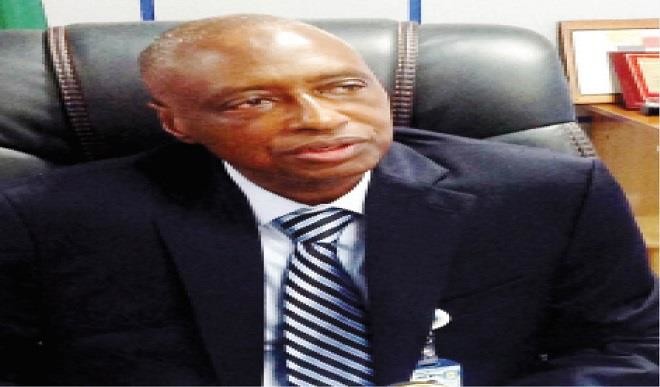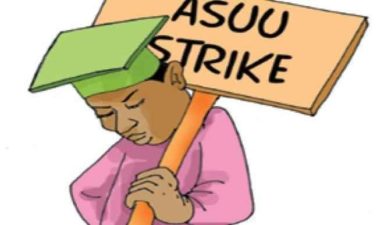The Rector, Nigeria College of Aviation Technology (NCAT) Zaria, Kaduna State, Capt. Abdulsalam Mohammed, in this interview speaks on his reforms in the college among other issues. Excerpts:
What is your programme for revenue generation and self-sufficiency at NCAT following government’s dwindling income and its capacity to sustain funding of the college?
The issue of revenue generation is foremost on our minds. We generate revenue internally. Though we get part of our funding from government, the rest of our expenses are covered by internally generated revenue (IGR). To raise more funds, we have come up with programmes and courses. We are also getting approvals from the International Civil Aviation Organization (ICAO) to introduce a number of courses with international content so we can be getting international students. We will charge normal fees on those courses unlike the current situation where most of our courses are subsidised by government.
We intend to commercialise our two helicopters. They are currently under inspection. They are not suitable for initial pilot training; they are for more advanced trainings. We intend to bring a smaller helicopter that students can use for the initial training before upgrading.
You just took delivery of a new Diamond model aircraft, what are the benefits to the college?
The present fleet of aircraft, on the average, is made up of 15-year olds. Though age is not much of a concern in an aircraft if the maintenance is good, the main issue is the availability of spare parts and aviation gasoline. There are very few aircraft operators in Nigeria still using aviation gasoline as fuel so importers are not really keen on importing it. There is also the trend among trainers to re-fleet to more modern aircraft using Jet A1 fuel which is why we are also upgrading and Diamond aircraft presents us that advantage.
Encroachment onto NCAT land has persisted. How are you dealing with it?
The issue of encroachment is indeed a very serious thing for us. The Minister of State Aviation, Sen. Hadi Sirika, was here in January before I was appointed and he saw for himself the areas encroached upon by the neighbouring community. The minister did take the issue up with the governor of Kaduna State, Mal. Nasir el-Rufai, who promised to assist us in reclaiming this land. I’m happy to say that he has already began taking action.
How much is it costing NCAT to re-fleet with 20 Diamond aircraft?
We are getting them in the region of $20 million. But that includes spare parts, training the pilots/instructors, and support from the manufacturer for a number of years. The manufacturer is training 20 pilots and 20 engineers. Already that has started.
There is concern that trainees (pilots, engineers) here at NCAT spend extra years and resources to graduate. What are you doing to stop the trend?
I am a graduate of this school. During my time, the progranme duration was 18 months and indeed we were able to complete it in two years. The main reason that caused the delay was weather. We still have weather related challenges today. Of course we don’t really have control over that. For instance, during harmattan, when visibility drops below a certain level, we cannot conduct training. Our pilots would have to wait for the weather to improve before they can train. That’s a big factor in the length of time in completing a training programme. This is a common thing in aviation. If you look at England where it always rains, they have similar challenges. So they had to create campuses in Arizona, USA, where it hardly rains. They take students there where they do the basic trainings to the point where they can fly even in the rain before they are brought back to England to complete their studies.
Another factor that causes elongation of the programme is epileptic supply of aviation gas. Sometimes you run out of stock and the contractor is also unable to supply on time. This causes disruption in the training. We have, however taken measures to ensure that we don’t run out of supply. Right now we have a supply that will last us six months and we have already started the process of resupply.
So during my tenure here, I will make sure we don’t run out of fuel. But on weather, we don’t have control. It’s nature. Suffice it to say, when I resumed duties here, I told my staff that I want us to go back to where we graduate pilots in 18 months. Some people will say, it’s even shorter in some other parts of the world but we are running ours based on the syllabus we have. We are graduating pilots with frozen Airline Transport Pilot Licence (ATPL) – that is they are trained up to the airline transport pilot stage. So all they will need to get their license is experience which they will build on overtime after graduation from here.
Ethiopian airlines annually graduate about 3,000 cabin crew – half of that engineers and pilots. Many of the Middle East airlines use Ethiopian and Kenyan cabin crews. When would we graduate enough cabin crew, pilots and engineers for foreign airlines to employ and create jobs for our youths?
I just returned from Addis Ababa, Ethiopia. I visited their training academy for cabin crew, pilots and engineers. The academy is tailored to meet the requirements of Ethiopian Airlines. The ones in the Middle East also are tailored to meet the needs of their airlines. NCAT was set up to meet the training needs of the entire country or aviation industry and not a particular airline. So we cannot train the kind of numbers you are talking about. Ethiopian airlines have over 60 aircraft. Emirates is the largest airline in the world so they are always employing people. If you go to Emirates, you find Nigerian pilots, engineers and crew members working there. They trained from NCAT. We have people we trained here working all over the world.
The Academy in Ethiopia also just trains pilots, mechanics, and crew for the airline but we train pilots, mechanics, cabin crew, dispatchers, air traffic controllers, technicians, and management staff. So we have a broader scope of work. But the issue here is when a pilot graduates from here, he needs to go build experience elsewhere. Foreign airlines even use Nigeria as a training ground for them to poach. I hope that by the time the national carrier is set up, we will witness a reversal in the trend. People go out because there are no jobs here, if we have a national carrier, they will stay here. It happened when Virgin Nigeria was set up. I left my job in the UK to join Virgin Nigeria. A lot others did too. This will still happen if the national carrier is formed. NCAT will also be required to train the manpower for the national carrier.
Talking about the national carrier, how can NCAT key into it to ensure the sector isn’t taken unawares when it is eventually established, in terms of human capital?
It depends on the type of aircraft the national carrier starts with. If they come with the type of aircraft that Nigerian pilots are qualified to fly, I can assure you that majority of the pilots will be Nigerians. But if they come with aircraft that are not flown by a lot of Nigerians, they will start with some expatriate pilots who will train the Nigerians. And that’s usually the case. Even for insurances, you won’t want to start an airline with people who are not familiar with the aircraft. So there will be a mixture of expatriate pilots and Nigerian pilots.
What is NCAT doing to encourage less privileged Nigerians who cannot afford its high school fees?
Like I said earlier, this college being government owned, its school fee is subsidised. I know to an ordinary person, it sounds expensive when you say you need to pay about N9 million to train as a pilot. If you go outside to train, even go to Ilorin to train, you will pay about double that amount because it’s full fees you will pay. So government has done enough by subsidising the cost of training. But there are cases where we offer scholarships or sponsorships to certain category of students to help them. Sometimes the college sponsors people and I was a beneficiary too. During my training years, I was sponsored by the college. I stayed back to work as an instructor to payback. We still have that arrangement as part of our social responsibility.
(This interview was conducted by Daily Trust)




